TAX FREE EXCHANGES IN THE PHILIPPINES

Tax-Free Exchanges can attract investors in the Philippines.
Tax-free exchanges allow an asset to be transferred to another owner with tax, which can be a considerable saving.
Tax laws mean that certain specific types of transactions in corporate combinations and expansions are eligible and are thus not subject to tax.
This article discusses what these and their peculiarities under Philippine law.
Contents
- What is a Tax-Free Exchange in the Philippines?
- What transactions qualify as Tax Free Exchanges in the Philippines?
- Are Tax-Free Exchanges in the Philippines totally free of taxes?
- Is a BIR ruling on a Tax-Free Exchange required?
- Is the BIR audit a pre-requisite for the Certificate Authorizing Registration?
- What is the substituted basis with respect to a Tax-Free Exchange in the Philippines?
- Court of Tax Appeals ruling on Tax-Free Exchanges
What is a Tax-Free Exchange in the Philippines?

Tax-Free Exchanges are transactions that are exempted from specific kinds of taxes.
Tax-Free Exchanges (TFEs) are transactions[1] not subject to Income Tax, Capital Gains Tax, Documentary Stamp Tax and/or Value-added Tax, as per the CREATE Act which came into effect in 2021.
The CREATE Act[2] expanded the meaning of Tax-Free Exchanges (TFEs) under Philippine tax law, widening the coverage of TFEs for corporations to reorganize, facilitate business, and attract investors. The CREATE Act also removed the need for a BIR Ruling on a Tax-Free Exchange, also making the process easier to do.
An example of a TFE is a tax-free exchange of property for stock, through which transaction the transferor or transferors collectively gain or keep control of a corporation. No gain is recognized for income tax purposes in such a transaction.
[1] Enumerated in Section 40(C)(2) of the National Internal Revenue Code (NIRC), as amended.
[2] Republic Act No. 11534, effective April 11, 2021.
What transactions qualify as Tax Free Exchanges in the Philippines?
Transactions involving either Reorganization or Transfer to a Controlled Corporation are considered TFEs under the CREATE Act.

There are two types of Tax-Free Exchanges in the Philippines.
The law defines these two types of TFEs as follows and gives specific examples for a tax-free exchange of stock or a tax-free exchange of property.
Reorganization Transactions that Qualify as Tax-Free Exchanges
- A corporation, which is a party to a merger or consolidation, exchanges property solely for stock in a corporation, which is a party to the merger or consolidation; or
- The acquisition by one corporation, in exchange solely for all or a part of its voting stock, or in exchange solely for all or part of the voting stock of a corporation which is in control of the acquiring corporation, of stock of another corporation if, immediately after the acquisition, the acquiring corporation has control of such other corporation whether or not such acquiring corporation had control immediately before the acquisition; or
- The acquisition by one corporation, in exchange solely for all or a part of its voting stock or in exchange solely for all or part of the voting stock of a corporation which is in control of the acquiring corporation, of substantially all of the properties of another corporation. In determining whether the exchange is solely for stock, the assumption by the acquiring corporation of liability of the others shall be disregarded; or
- A recapitalization shall mean an arrangement whereby the stock and bonds of a corporation are readjusted as to amount, income, or priority or an agreement of all stockholders and creditors to change and increase or decrease the capitalization or debts of the corporation or both; or
- A reincorporation shall mean the formation of the same corporate business with the same assets and the same stockholders surviving under a new charter.

Transferring of properties to a controlled corporation is a Tax-Free Exchange as long as it follows the guidelines provided by the CREATE Act.
Transaction Transfer to a Controlled Corporation that Qualifies as a Tax-Free Exchange
A Tax-Free Exchange of property occurs when there is a transfer of property to a corporation by a person, alone or together with others, not exceeding four persons, in exchange for stock or unit of participation in such a corporation which as a result of such exchange the transferor or transferors collectively gain or maintain control of the corporation: Provided, that stocks issued for services shall not be considered as issued in return for the property.
Are Tax-Free Exchanges in the Philippines totally free of taxes?

Original issuances of shares in exchange for properties are subject to Documentary Stamp tax in the Philippines.
Tax-Free Exchanges are exempt from the majority of taxes.
These would be Capital Gains Tax, creditable Withholding Tax, Income Tax, Donor’s Tax, Value-Added Tax, and Documentary Stamp Tax (DST) on conveyances of real properties and shares of stocks.
However, the original issuance of shares in exchange for properties is still subject to DST.
Is a BIR ruling on a Tax-Free Exchange required?
No, a BIR ruling on a Tax-Free Exchange is not required.
The BIR previously required parties to a TFE to obtain a tax ruling from its Legal and Legislative Division before a transaction could avail of the tax exemption.
However, the CREATE change this and stated that a BIR ruling on a Tax-Free Exchange is not required. This now aligns with a 2020 Supreme Court ruling[3] that struck down the Requirement for a BIR Ruling on a Tax-Free Exchange as beyond the BIR’s authority.
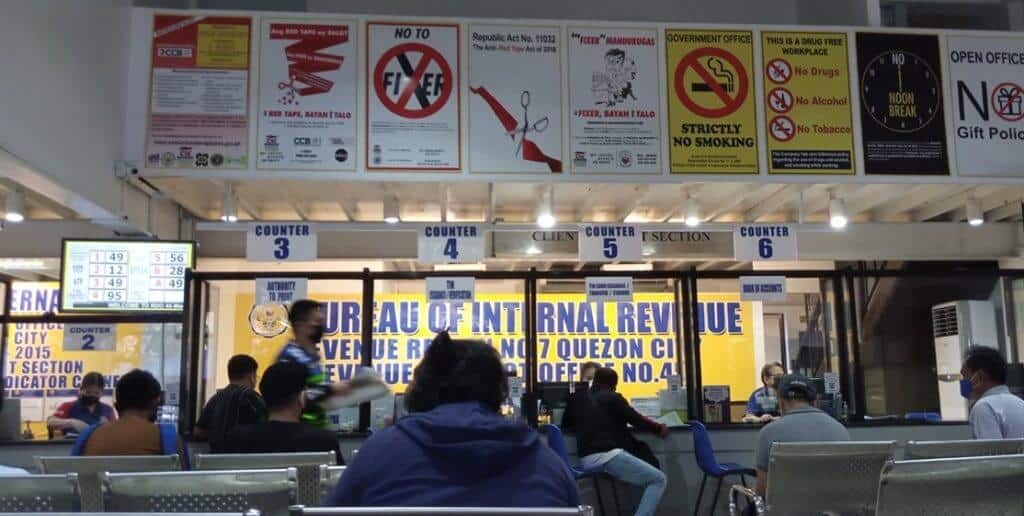
Removing the BIR ruling as a requirement to avail of Tax-Free Exchanges in the Philippines is a huge help for investors.
The transactions are instead subject to a post-transaction audit by the local Revenue District Office of the BIR.
If the transaction is not upheld as a TFE by the RDO’s audit, then the parties will have to pay the taxes, plus interest, penalty, and surcharge.
Still, a transfer of title effected on the properties will remain valid no matter the result of the audit.
Since the BIR subsequently audits the TFE, parties will have to present documents proving that the transaction qualified as TFE.
These extensive documents are enumerated in RMO No. 32-2001.
Is the BIR audit a pre-requisite for the Certificate Authorizing Registration?
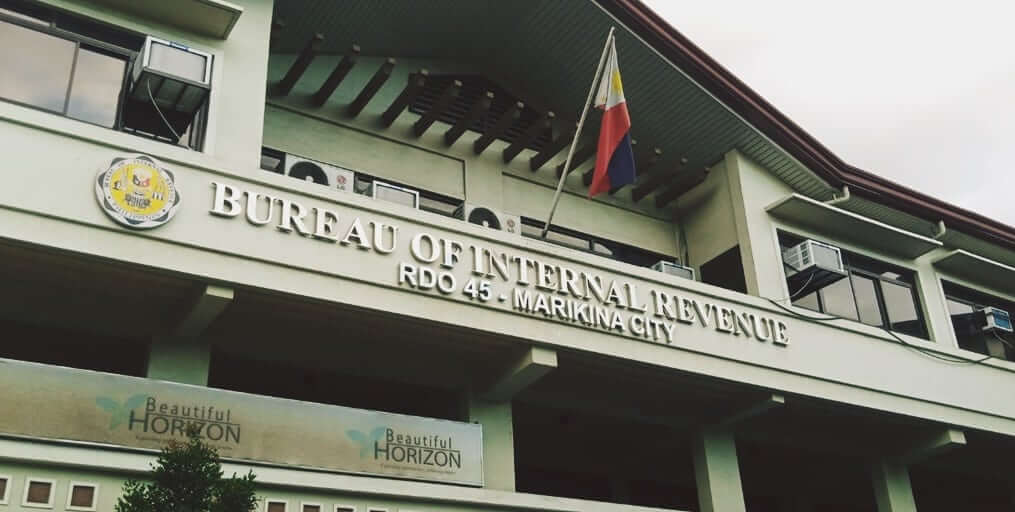
If a transaction does not qualify as a Tax-Free Exchange, taxes will apply.
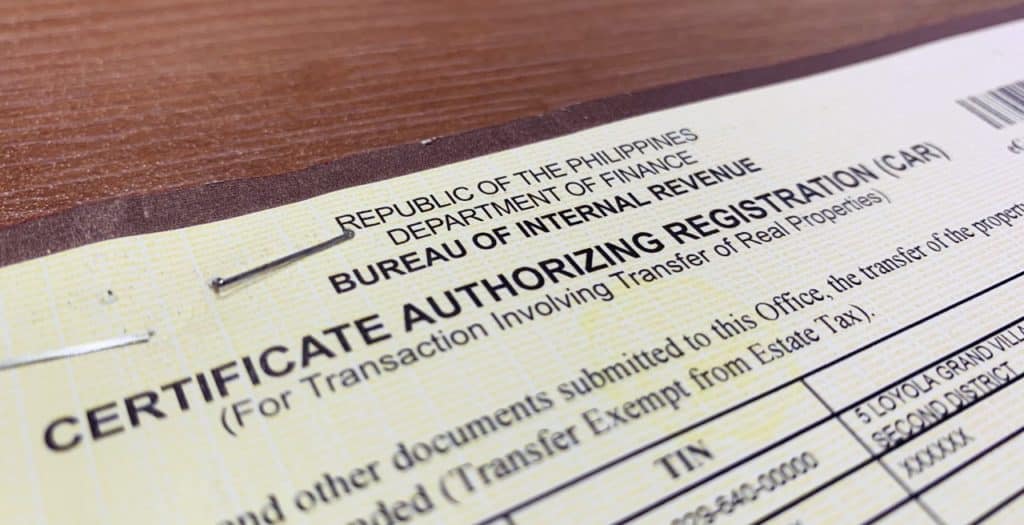
BIR audit is not a requirement for the issuance of Certificate Authorizing Registration.
The correct BIR RDO that handles the Tax-Free Exchange depends on what asset is involved.
- A Tax-Free Exchange of property should be governed by the BIR RDO where the property is located.
- A Tax-Free Exchange of stock would be governed by the BIR RDO where the issuing corporation is registered.
If the transfer involves multiple real properties and/or shares of stocks in various locations under different RDOs, the CAR shall be processed with the RDO of the place where the transferee corporation is registered.
What is the substituted basis with respect to a Tax-Free Exchange in the Philippines?
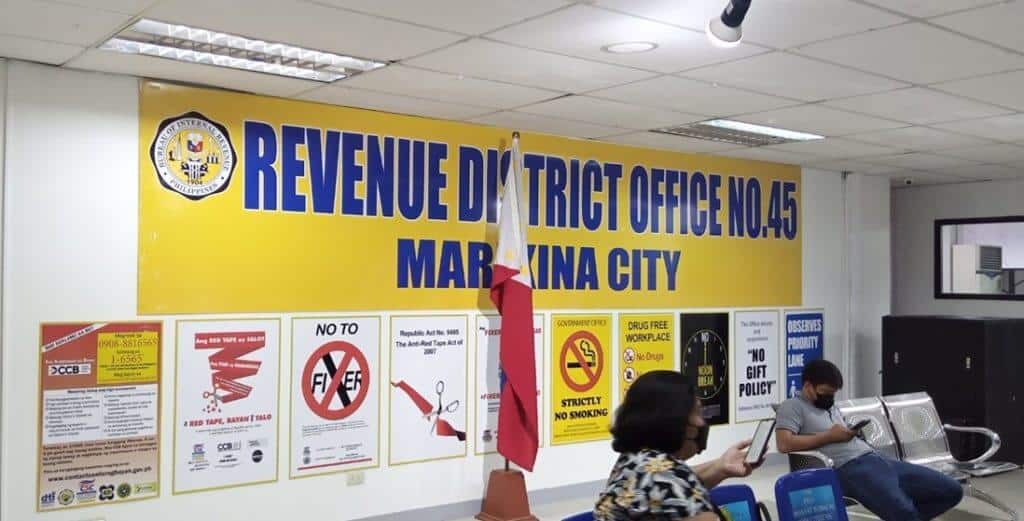
It is important to know the proper BIR RDO where to file the requirements for Tax-Free Exchanges in the Philippines.
These documentary requirements are also in service of the fact that Tax-Free Exchanges are not permanently free. As the BIR has noted, for purposes of taxation, CREATE merely defers recognition of gain or loss on the exchange. Any gain or loss will be recognized and taxed when the real properties or shares are subsequently transferred. It is for this reason that the BIR requires the substituted basis of the properties to be established and monitored – so that they can be taxed accordingly in case of their subsequent sale or transfer from the TFE transferee.

CREATE Act merely defers recognition of gain or loss on the exchange.
RMO No. 19-2022 provides how the substituted basis is computed in the respective cases of stocks or securities and properties in the hands of the transferee. This substituted basis will be the basis, for tax purposes, for determining gain or loss on a subsequent sale or transfer of properties subject to the TFEs.
RMO No. 19-2022 confirms the requirements of Revenue Regulations No. 18-2001’s requirements for proper monitoring of the substituted basis. These include statements in the parties’ tax returns and audited financial statements for the year which detail the TFEs as well as the annotation of the official titles (such as Transfer Certificate of Title or shares of stock) to the affected properties.
Court of Tax Appeals ruling on Tax-Free Exchanges
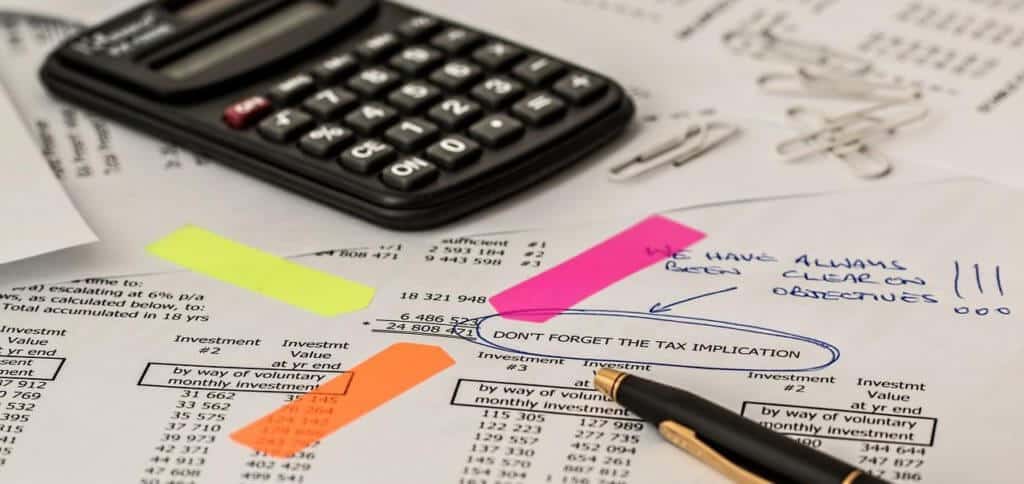
The BIR monitors the substituted basis for tax purposes.
The recent amendment of the law has expanded the scope of TFEs, but it remains worthwhile to recall the CTA’s rulings on which transactions fell within the language of a more limited statute.
One emphatic example was a case where a domestic corporation’s shares of the stock were exchanged for parcels of land belonging to four other companies through a Deed of Transfer. As a result, the four companies came to own over 99% of the former’s total voting stocks.
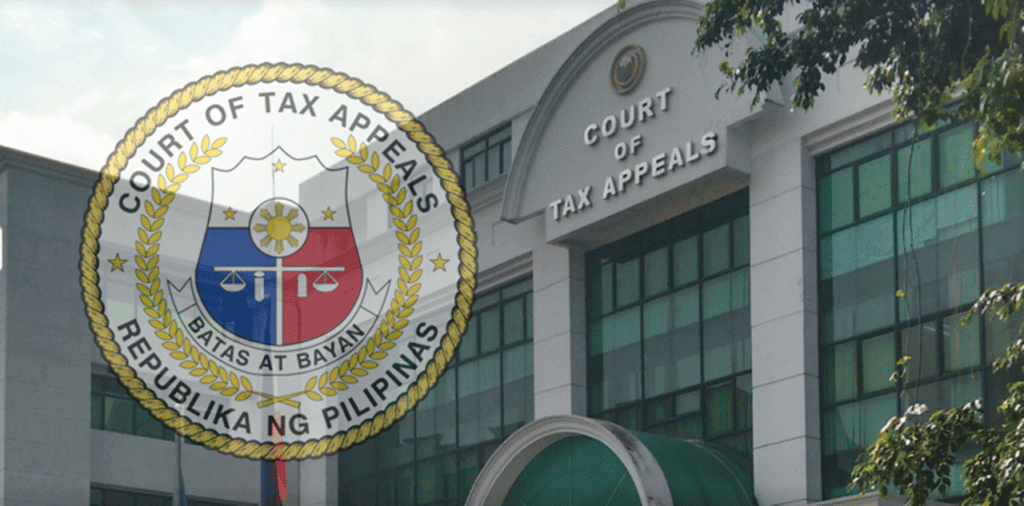
The CTA has several rulings about Tax Free Exchanges in the Philippines.
Considering control of a corporation is established by ownership of 51% of its shares, this exchange was ruled to be tax-free pursuant to Section 40(C)(2) of the Tax Code.[1]
Likewise, when a corporation exchanges its property for shares of stock of another corporation pursuant to a plan of merger or consolidation the Court of Tax Appeals affirmed this as a tax-free exchange. The term “merger or consolidation” embraces a de facto merger or one by which a corporation acquires all or substantially all of the properties of another corporation for stock. This is provided the exchange was done for a bona fide business purpose and not merely for eluding the tax burden.[2]
The same case explained that the law was written thus because the imposition of taxes on corporate combinations and expansions discouraged the latter to the detriment of economic progress, particularly the promotion of local industry.
[1] CIR v. Dominium Realty & Construction Corp., CTA EB No. 1713, November 13, 2018.
[2] CIR v. Premium Tobacco Redrying & Fluecuring Corp., CTA EB No. 1755, April 22, 2019.






0 Comments